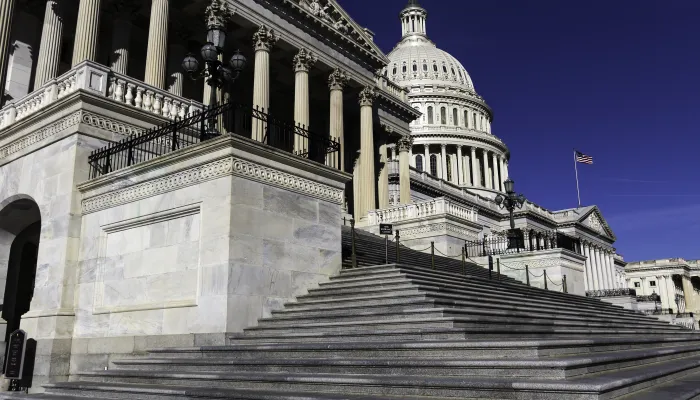Brookings' Pathway to Reforming the Budget
In a new and informative series on Reforming the Budget, the Brookings Institution looked at challenges facing the budget process and proposed strategies to improve its shortfalls. Given the frequent breakdown and tardiness in the process and the limitations of federal budget data, there are a number of ways to improve budget process and accounting in order to facilitate better decision making.
The Brookings series presents articles from a number of budget community experts. Our recent blog covered the first two pieces in the series by Phillip Wallach and Elaine Kamarack. Picking up where the first left off, this blog covers the final five installments in the series. Overall, the experts clearly send the message that budget reform is badly needed to incorporate a review of all parts of the federal budget and to become a more manageable process. Bipartisan cooperation will be integral to the success of any reform effort.
* * *
Former CBO director and CRFB board member Alice Rivlin presents her ideas for reforming the currently broken budget process in 'How to Fix the Congressional Budget Process'. She makes a number of points about what an ideal budget process would look like -- noting that it should contain three central elements. First, the process should consider all spending and revenues. Currently, tax expenditures and mandatory spending are not given proper annual consideration like discretionary spending. Secondly, the process should be easy to understand and complete on time. Rivlin writes that since the Budget Reform Act of 1974, it has been too elaborate to be workable and its numerous demanding deadlines are regularly missed. Lastly, Rivlin proposes turning the budget into a law passed by Congress and signed by the president (it is currently a resolution passed by Congress, not signed by the president, and does not have the force of law). Additionally, she proposes that the membership of the Budget Committees include Congressional leadership and chairs of the program and revenue committees.
Linda Bilmes' article, Four Steps to Restore Fiscal Discipline, states that the current budgeting system is broken. For one thing, it consumes far too much time. Each year across the government, thousands of officials prepare their agencies' budgets, but increasingly often, Congress ignores these proposals and estimates. Rather, Congress has fallen into a pattern of enacting budgets based on the previous year's spending levels, not based on current need. To improve the budgeting system, Bilmes suggests four reforms: transitioning to biennial budgeting to lessen the time burden, adopting managerial cost accounting and capital budgeting, rewarding managers for efficiency gains, and simplifying the budget process.
Paul Posner, Steven Redburn, and Jonathan Breul address the absence and relative invisibility of tax expenditures in the budget process in their article, The Mysterious Case of Tax Expenditures. They argue tax expenditure consideration should be added to the budget process for multiple reasons. First, their relative lack of transparency and accountability means other parts of the budget assume disproportionate shares of deficit reduction. Second, to hold revenues constant, tax rates have to be higher to cover the costs of subsidies provided through the tax code. Finally, tax provisions often subsidize activities taxpayers would undertake anyway, so they are not efficient. We have repeatedly called for tax reform and emphasized the great need for a close examination of tax expenditures.
Philip A. Wallach, in his article The Still-Useless Debt Ceiling, calls for the repeal of the debt ceiling and replacement with another measure aimed at fiscal restraint. His reasons are that the debt ceiling incited budget standoffs of recent years have been economically damaging. He links to a previous post of his suggesting a few ways to replace the debt ceiling, including with counter-cyclical spending controls or a "No Budget Agreement, No Pay" type provision.
In Thomas E. Mann's article, Budget Process Blues, he blames Congressional hostility and failure to make timely and reasoned decisions as a fatal impediment to the budget process. He states budget process reforms such as biennial budgeting and instituting caps on spending and revenue are an ill-suited match for Congress' recent failures.
* * *
We agree with several of the authors that the budget process contains plenty of room for improvement. The current system is flawed and does not adequately serve the public. However, budget process reforms alone cannot solve our nation’s fiscal challenges. Still, they can help make budget decisions be made more efficiently and perhaps pave the way for a major budget deal. The Peterson-Pew Commission has provided extensive in-depth analysis of options for budget process reform. Take a look at our analysis of the Commission's work.


